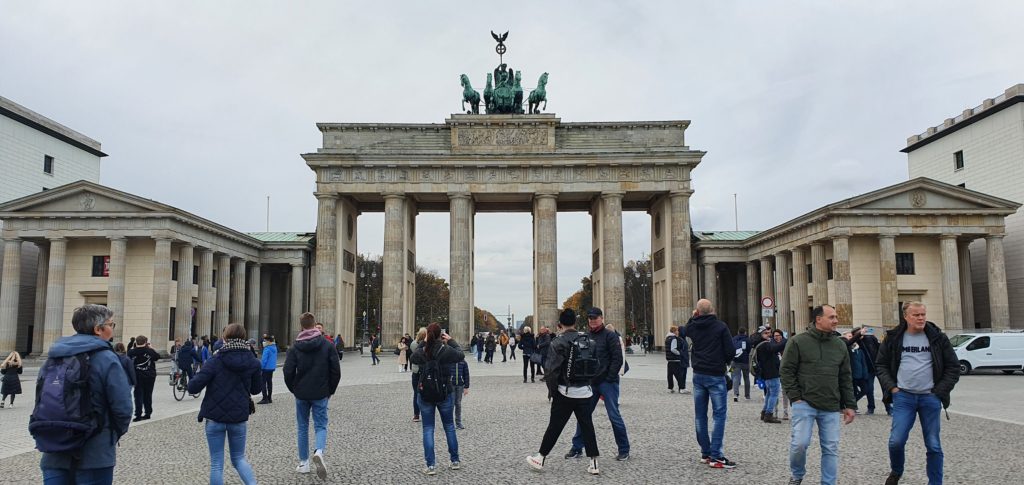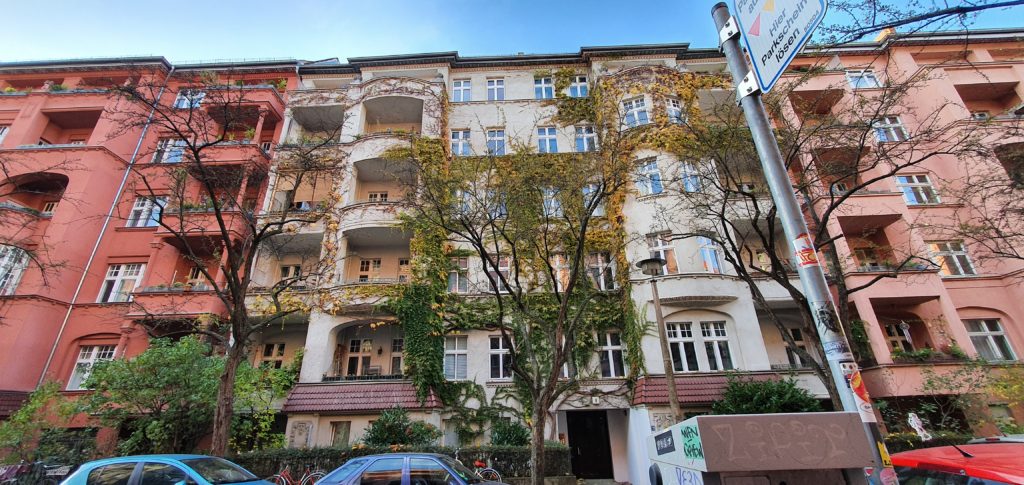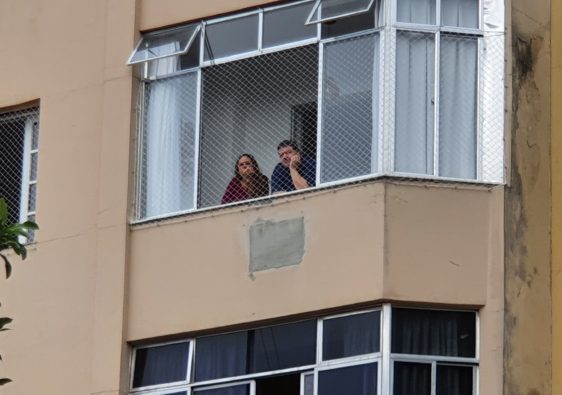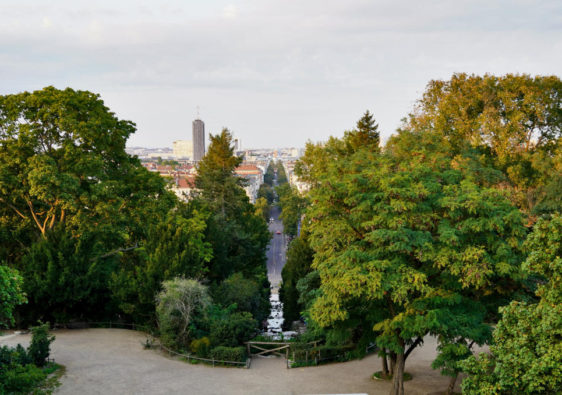Visiting Berlin is one thing, but living in Berlin, that’s a whole other sack of potatoes.
If you’ve ever considered moving to (or spending more than a few days in) the most artistic city in Germany, then you should be well prepared for the slow, rocky ride ahead. Berlin is tough. The language, the apartment searching, the bureaucratic bs, the snail paced health system, the lack of advanced technology, the overpopulation of city vehicles, the weather…. There’s so many obstacles to overcome in order to obtain residency here it’s ridiculous.
Now 1.5 years later, here I am with my own residence card, an okay paying job and yet another temporary sublet contract about to run out and still no sight of a more permanent place to move into.
Below you’ll find the top 6 things you should really know before moving to Berlin. But in case you’re looking for guidance or tips on one struggle in particular, I’ve created a table of contents to help you move a little more quickly through it.

Prelude: From Rio to Berlin
I officially traded the sandy beaches of Rio for the cold grey city Berlin in October of 2020.
Why? The short answer is love.
I was following up with a relationship that began in Rio. Unfortunately, though, my arrival just so happened to coincide with the city’s first full Corona lockdown.
To give you a little look into what lockdown at that time looked like here:
-Pretty much everything with the exception of essential businesses were closed
-FFP2 masks were required everywhere you went
-No gatherings were allowed
-Walking outside at certain hours was still permitted (but being winter, weather is always cold, windy, grey and miserable, so walks outside were limited)
Speaking German in Berlin
Even though Berlin is the most diverse city within the country of Germany, there’s still a surprising amount of people living here who don’t speak English. Even amongst younger generations. Here the top languages spoken are German and Turkish.
I, myself, speak English, Spanish, Portuguese and a little bit of French. Unfortunately, none of these are useful for me here. And I can’t tell you how many times I’ve had run-ins with someone where language became a humongous barrier.
A regular occurrence
One day I went into a local convenience store to drop off a package I’d been meaning to ship my mom for Christmas.
(Most of these types of stores –aka spatis– do multiple things. Like sell convenient items, plus take care of quick and easy shipments and/or pick up of parcels)
My item was packaged and pretty much ready to go, but because I had no printer at home, I had to go somewhere, print off my label and bring it with me. Meaning I needed to tape it there.
Unsure if I could even ship international at these little c-stores, I entered anyway and asked for tape. All was going well, until I asked about international shipping. I’m not quite sure what fire I sparked in the gentleman working there, but his fuse blew. His voiced raised an octave, the velocity of his words took off, and his facial expressions seemed less than tolerable.
I couldn’t understand what exactly he was saying, but his words were strong enough to push me out the door with tears filling my eyes.
All I wanted to do was mail my mom’s Christmas present, and after this encounter I didn’t even feel capable of doing this simple task on my own.
The problem was, this wasn’t the first encounter I had had like this. It seemed to happen every time I went out to do something like this on my own. I’d try to do what I could in German, then when I switched to English, there’d arrive a misunderstanding and soon enough I’d be getting yelled at aggressively by whoever seemed to be working.

Apartments and housing in Berlin
So many people are flooding to Berlin right now.
Expats, tourists, refugees. People for work, people for play, for adventure, for escape – you name it.
The city is full.
And as such, housing is in high demand.
Currently, to find a place here, you pretty much have to know somebody who knows somebody who has an apartment to rent in order to find something decent. By decent, I mean something affordable. Something in a good neighbor. With sufficient square meters and offers anmeldung.
*Anmeldung is a German word for rental registration. It allows you to take over a place in your name with a signed contract for a longer rental period. Basically letting the city of Berlin know what housing location is under your name. That way if they ever need to contact you, they can. (You need an anmeldung if you plan on staying longer than a tourist visa in Germany.)*
Unfortunately, if you don’t have this friend of a friend connection and you don’t want to break the bank by hiring a rental search company, you’ll be stuck with temporary sublets or rooms in shared apartments. None of which offer anmeldung.
If you need something fast
Facebook Marketplace, WG-Gesucht, Berlin housing groups on Facebook, and EBAY Kleinenzagen are excellent places to start your search.
Just note, the housing here usually will not offer anmeldung* and it will almost always be for shorter term.
If, by chance, you are lucky enough to find something to take over, act fast and be prepared to be thoroughly vetted.
(Subletters here tend to thoroughly interview prospective tenants before committing to any one person. Sometimes even interviewing up to 50 different people in search of the perfect renter.)
If you need something more permanent
Contact one of the many rental properties in the city, but do it well in advance. These places require lots of paperwork, hours are usually limited, communication is slow, and when they finally do find you a place, again you need to act fast! An apartment doesn’t usually stay on the market for more than a few days.
Also, know that the more filters you put on your search, the less likely it is to find something right now.
The pros?
Going through a legitimate rental company will save you the hassle of finding a place. It will also save you the time and energy you are sure to expend during your personal apartment search.
The cons? It does come at a pretty hefty commission once you finally sign for a place.
For more information about the short-term housing process, check out my post The No. 1 Biggest Challenge For Moving To Berlin
Getting Around in Berlin
Public Transportation
Berlin is not a place you want to be without an app like Google Maps.
The city is way too big, construction is way too frequent, riots and technical difficulties with the trains are very much ongoing. Without Google Maps here, I’d be lost. Every damn day. I mean, honestly, even with it, I struggle to get anywhere on time. Sometimes I’ll try to leave an hour early for a 30 minute commute and somehow still manage to arrive late.
Thankfully, the city offers a ton of other options if you don’t feel like taking the train, you don’t have a bike and where you need to go is too far to walk.
For example, the city is full of app sharing vehicles. Cars, mopeds, scooters, bicycles – pick your fancy; they’re everywhere. (Top companies are Bolt, Tier, WeShare, SIXT)
TIP: BVG is Berlin’s main public transport company. It manages the city’s U-Bahn, tram, bus, replacement services and ferry networks. So if you go to their website, or download their app, you can easily stay up-to-date with schedule changes, find the best routes to take, and even buy tickets for your ride. (For more information on the website, click here.)
Owning a car
While it’s definitely beneficial to have a car in this expansive city at times, I’m not sure exactly how much more advantageous it is to own one.
Which is why car sharing companies like SIXT, We Share, We Share +, Miles, etc. are lifesavers to have in a place like this. The car sharing companies allow you to rent a car and pay by minute. Making transportation by car easily accessible to all with a German passport. (For those without German ID, it’s not as easy, but still an option.)
The downside to having and driving a car in Berlin? Parking.
Parking is so limited here that entire lanes have been taken over to allow for the overpopulation of vehicles in the city. (Which, trust me when I say, the city doesn’t need. It’s hard enough driving around with all the construction all the time.)
Bureaucracy in Berlin
Paperwork, paperwork, more paperwork, and waiting. Lots and lots of waiting.
That’s all I have to say.
Getting a worker/artist/job-seeker visa
(One great thing about Germany is their variety in visas.)
The first step to obtain you work/artist/job-seeker visa is to get an appointment with Landesamt.
Unfortunately, since Corona, there is no option to arrive early and queue up. Nor is it possible to call to make an appointment.
To get an appointment, you must first cross your fingers and hope something is available. Unfortunately, however, those blue squares indicating a free time slot on the Landesamt website are rare little Pokémon. Therefore, if you see one, you better snatch it up – fast! They won’t stay available on the Landesamt website long.
To give you a quick personal anecdote: when I was attempting to book my first online appointment, there was nothing. Ever. Not a single appointment available. For months, nothing.
The advice I got from Landesamt and all who had treaded this path before me? Visit the site early of a morning and refresh, refresh, refresh. Then keep refreshing the appointment booking page until something becomes available.
This isn’t the most efficient strategy, but it’s what they say to do and so far it’s been proven, tried and true. Plus, I can now vouch for it as that’s exactly how I was able to book my first appointment. Although, I did have to wait four months for it, but at least I had something tangible that allowed me to stay within Germany past my tourist visa.
On the bright side of waiting so long for appointment day, there is plenty of time to gather and fill out the mound of paperwork required for your first appointment. And believe me, there’s a lot.
And once you finally made it to you appointment, the rest goes fairly quickly. (Considering you have ticked all the boxes on the requirement list, of course.)
For more information on obtaining a visa in Berlin, check out this website here. This is what I used when preparing for my Artist’s Visa.
Health insurance in Berlin
Different to my experience from the Midwest, USA, to get health insurance in Berlin, you first need to go through a health broker.
Thankfully, the process is pretty easy once you have a trusty contact to work through. Unfortunately, though, German health insurance isn’t cheap. (I’m currently paying for the cheapest option I could find and even after comparing prices, the lowest price I could find was still 160 euros per month).
When it comes to choosing the right insurance, your broker will do all the work. The only thing you really have to decide is if you want to go public or private.
Everyone says that if you start private, it’s really difficult to go public later on. However, I know of certain cases where it was still possible. (I’m currently with a private insurance.)
Doctor’s visits
Let’s go back to struggle no. 1 here.
Of all the doctor’s visits I’ve had in Berlin, only the chiropractors and sports therapists seem to speak English.
Everything else I’ve experienced, has unfortunately resulted in headache with each and every visit.
Bottom line: bring a translator.



